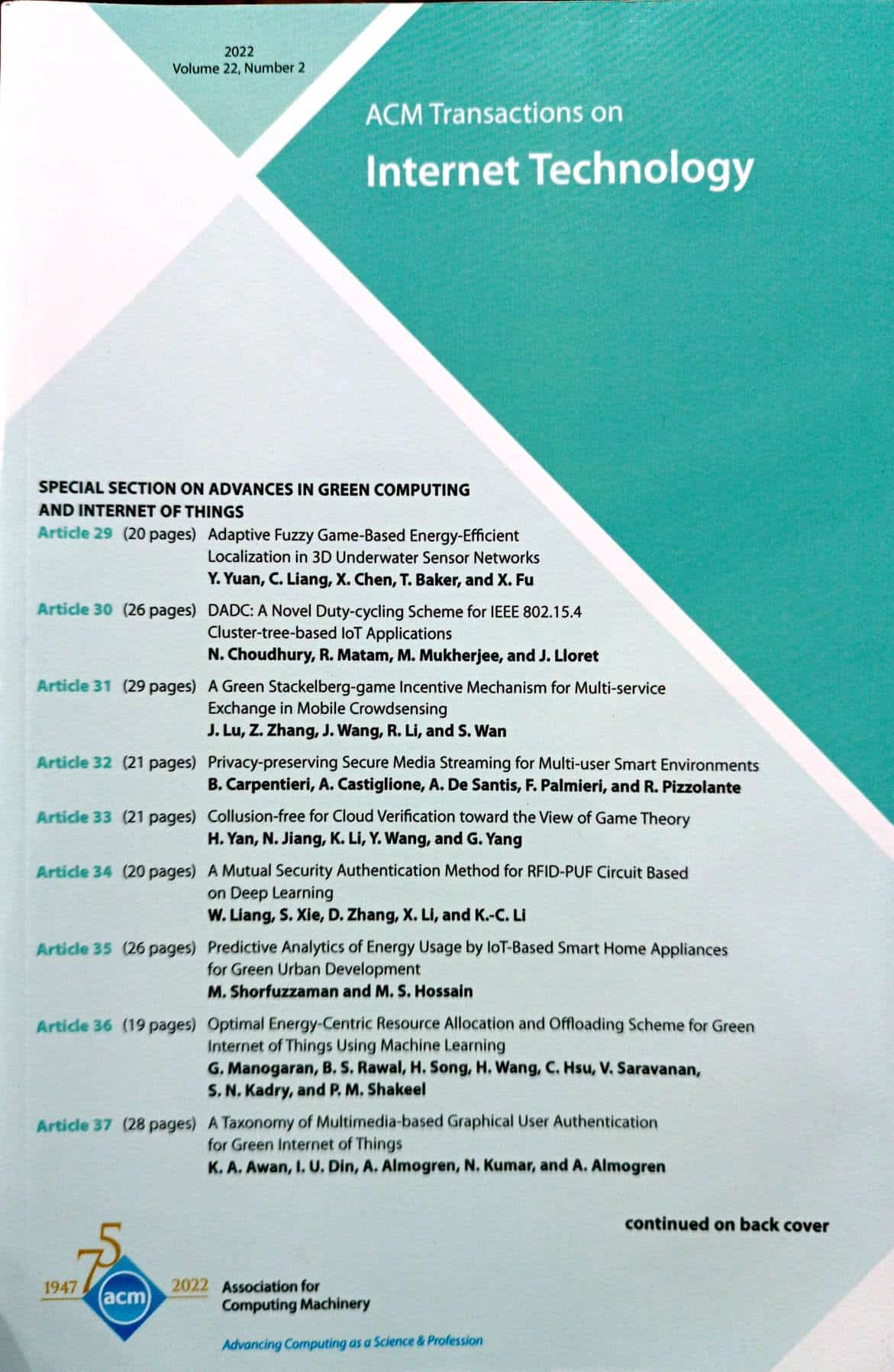An Intent-driven DaaS Management Framework to Enhance User Quality of Experience
IF 4.1
3区 计算机科学
Q2 COMPUTER SCIENCE, INFORMATION SYSTEMS
引用次数: 1
Abstract
Desktop as a Service (DaaS) has become widely used by enterprises. In 2020, the use of DaaS increased dramatically due to the demand to work remotely from home during the COVID-19 pandemic. The DaaS market is expected to continue growing rapidly [1]. The quality of experience (QoE) of a DaaS service has been one of the main factors to enhance DaaS user satisfaction. To ensure user QoE, the amount of cloud computation resources for a DaaS service must be appropriately designed. We propose an Intent-driven DaaS Management (IDM) framework to autonomously determine the cloud-resource-amount configurations for a given DaaS QoE requirement. IDM enables autonomous resource design by abstracting the knowledge about the dependency between DaaS workload, resource configuration, and performance from previous DaaS performance log data. To ensure the IDM framework's applicability to actual DaaS services, we analyzed five main challenges in applying the IDM framework to actual DaaS services: identifying the resource-design objective, quantifying DaaS QoE, addressing low log data availability, designing performance-inference models, and addressing low resource variations in the log data. We addressed these challenges through detailed designing of IDM modules. The effectiveness of the IDM framework was assessed from the aspects of DaaS performance-inference precision, DaaS resource design, and time and human-resource cost reduction.增强用户体验质量的意图驱动的DaaS管理框架
桌面即服务(DaaS)已被企业广泛使用。2020年,由于新冠肺炎大流行期间在家远程工作的需求,DaaS的使用大幅增加。DaaS市场预计将继续快速增长[1]。DaaS服务的体验质量(QoE)一直是提高DaaS用户满意度的主要因素之一。为了确保用户QoE,必须适当设计DaaS服务的云计算资源量。我们提出了一个意向驱动的DaaS管理(IDM)框架,以自主确定给定DaaS QoE需求的云资源量配置。IDM通过从以前的DaaS性能日志数据中抽象出关于DaaS工作负载、资源配置和性能之间依赖关系的知识,实现了自主资源设计。为了确保IDM框架适用于实际的DaaS服务,我们分析了将IDM框架应用于实际DaaS服务的五个主要挑战:确定资源设计目标、量化DaaS QoE、解决日志数据可用性低的问题、设计性能推断模型以及解决日志数据中资源变化低的问题。我们通过IDM模块的详细设计解决了这些挑战。从DaaS性能推理精度、DaaS资源设计、时间和人力资源成本降低等方面评估了IDM框架的有效性。
本文章由计算机程序翻译,如有差异,请以英文原文为准。
求助全文
约1分钟内获得全文
求助全文
来源期刊

ACM Transactions on Internet Technology
工程技术-计算机:软件工程
CiteScore
10.30
自引率
1.90%
发文量
137
审稿时长
>12 weeks
期刊介绍:
ACM Transactions on Internet Technology (TOIT) brings together many computing disciplines including computer software engineering, computer programming languages, middleware, database management, security, knowledge discovery and data mining, networking and distributed systems, communications, performance and scalability etc. TOIT will cover the results and roles of the individual disciplines and the relationshipsamong them.
 求助内容:
求助内容: 应助结果提醒方式:
应助结果提醒方式:


